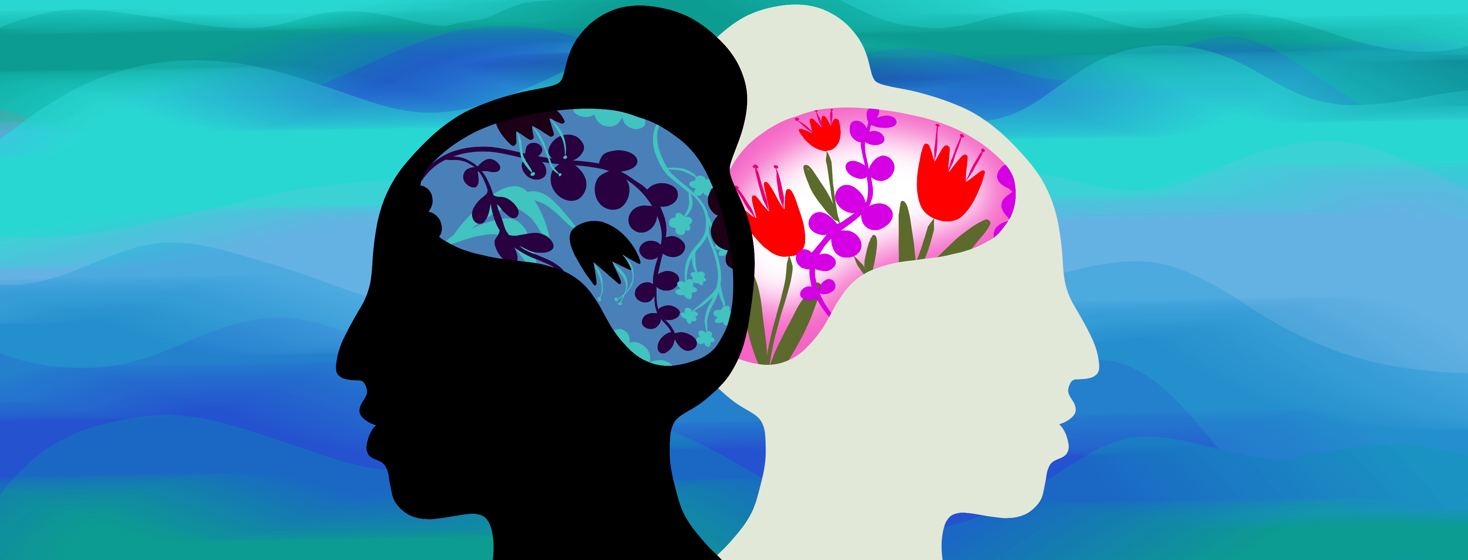Managing Mental Health through Illness
As a nutrition coach living with three autoimmune diseases, I’ve become extremely intentional with my diet and lifestyle habits.
For example...
- I avoid the inflammatory foods.
- I fill my plate with nutrient dense foods.
- I stay well hydrated throughout the day.
- I move my body to the best of my ability daily.
- I even take my supplements to fill in any nutritional gaps I may have.
So, I feel like I’m doing my best to create a healing environment in my body. But I recently became aware of a big oversight on my part. My body may be healthy, but is my mind healthy?
The mind-body connection
Sounds odd, right? I thought so. But then I started to learn more about the impact our mind has on our health.
In an article titled, “The Power of Positive Thinking”, Johns Hopkins stated, “People with a family history of heart disease who also had a positive outlook were one-third less likely to have a heart attack or other cardiovascular event within five to 25 years than those with a more negative outlook.”1
That’s pretty powerful. It made me curious, are my thoughts contributing to my healing? The more I curious I got about it, the more humbled I became.
Understanding mental health
I was listening to a podcast about how we tend to define mental health.
Generally speaking, there tends to be two categories. Either you have a diagnosed mental health condition, or you don’t. And if you don’t have a diagnosis, then you’re deemed mentally healthy. But there is some middle ground too. Just because you’re not to the point of a mental health condition doesn’t mean that you have optimal mental health.
Somedays, it’s downright hard to not let the thoughts of the physical pain, the emotional disappointment, and grief of cancelled opportunities, get the best of me. It’s easy to fall into a victim mentality. I've asked, “I’ve taken such good care of my body since I was young, how did I end up with so many health challenges?”. But if I want my body to truly heal, I need to change that belief and that script in my mind.
Searching for gratitude
I could be grateful for the fact that I learned so much about natural healing so I can support my body through these health challenges. I remember as my mom went through 10 years of chemotherapy she would say, “I’m so grateful we have a comfortable home that I can rest in”. It’s from that place of gratitude that we can shift to a more positive mindset and support our healing.
This is the middle ground that I feel the majority of us fall into. We may not have a diagnosed mental health condition, but we certainly can up the quality of our mindset, thoughts, and beliefs.
Before I close, I want to say that I’m not suggesting that we sugar coat the reality of living with a painful chronic illness. That’s very real. But our beliefs, thoughts, and words about it will determine what are path with that illness looks like moving forward.
Choosing to find those moments of gratitude and focus on them will make the road a little easier.
Do you have a practice that helps support your thoughts and mindset? If so, I’d love to learn about it.

Join the conversation